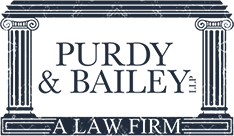
San Diego Unfair Competition Lawyer
What is Unfair Competition in Business?
In a perfect world, everyone is free to create their own business and thrive with no other company trying to harm their brand through unethical means. Unfortunately, many companies will resort to unfair competition to succeed beyond their competitors. The term “unfair competition” describes an array of harmful business practices used to either bolster one’s own profits or bring harm to another company.
Our San Diego unfair competition attorneys understand how state and federal laws aim to prevent this type of behavior, and we investigate whether companies are engaging in unlawful practices. If another company is using malicious methods to bolster their own businesses or if you are facing unjust accusations of unfair competition, speak with us. We can meet with you, analyze your options and chart a path towards a successful resolution for you and your business.
We are ready to guide you through this time. Contact Purdy & Bailey, LLP at (858) 360-7080.
Unfair Competition Laws
Laws on unfair competition are intended to protect companies while establishing an equitable, competitive market. They are generally governed by state common law, but federal statutes such as the Federal Trade Commission Act and antitrust laws also play an important role. The FTC Act, for example, prohibits "unfair methods of competition" and "unfair or deceptive acts or practices."
Other unfair competition laws include:
- The Sherman Antitrust Act of 1890 is a federal law enacted to prevent monopolistic business practices and promote economic liberty. It prohibits activities that restrict interstate commerce and competition in the marketplace, aiming to preserve free and unfettered competition as a rule of trade.
- The Clayton Antitrust Act of 1914 is aimed at strengthening the Sherman Act by further defining unethical business practices. It targets specific anti-competitive actions like price discrimination, tying contracts, and unlawful corporate mergers or acquisitions. This Act bolsters competition and curbs monopolies
State laws also safeguard nearly all information that offers businesses an advantage over other businesses in the same industry:
- The Cartwright Act is California's primary state antitrust law, enacted in 1907. It prohibits anti-competitive activities, mirroring federal antitrust laws. The Act declares certain trusts as unlawful, aiming to preserve competition. It specifically targets combinations of capital, skill, or acts by two or more persons that restrict fair trade.
- The California Uniform Trade Secrets Act (UTSA) provides a legal framework for the protection of trade secrets. It prohibits misappropriation of confidential business information, including theft, bribery, misrepresentation, breach, or inducement of a breach of a duty to maintain secrecy.
- The California Unfair Competition Law (UCL), codified in Business & Professions Code section 17000, outlaws deceptive or misleading advertising as well as unlawful, unfair, or fraudulent business practices.
Antitrust laws prevent businesses from engaging in practices that restrict fair trade and competition. Additionally, laws like the Uniform Deceptive Trade Practices Act (UDTPA) exist to protect businesses and consumers from deceptive business practices. These laws collectively ensure that businesses can compete fairly, without fear of deception or wrongful practices impeding their economic success.
Business Practices That Qualify as Unfair Competition
Business and competition go hand-in-hand, but that doesn’t mean an organization can resort to unfair business practices. A competitor’s deceptive or wrongful acts can result in monumental damage to your business. Fortunately, there are federal and state laws designed to protect the creative, intellectual and economic investments made by a business in distinguishing themselves and their products. Below we’ll discuss examples of unfair competition and how you can protect yourself.
Unfair competition is an umbrella term for several different types of economic torts. Examples of unfair competition include:
- Trademark infringement is the unauthorized use of a trademark or service mark on or in connection with goods or services that is likely to cause confusion about their source.
- Unauthorized substitution of one brand of goods for another is also known as “bait and switch,” in which a seller uses trademarked images on their products for financial gain.
- Misappropriation of trade secrets includes stealing a competitor’s secrets and using them for financial gain.
- False representation of products or services is when someone makes any materially misleading product warranty or guarantee.
- False advertising can include exaggerated claims or straight up lies about a product or service.
State and federal laws both protect business owners when it comes to unfair competition. Courts have a number of tools to prevent this, and to restore money or property to victims of unfair competition. In California, victims can collect monetary and injunctive relief. If you’re a victim, the courts look at several factors when determining compensation, including the number of violations, the seriousness of the misconduct, the length of the deceptive acts, and the defendant’s assets, liabilities and net worth.
How Do Unfair Competition Laws Help the Business Sector?
- Unfair competition laws strive to uphold five basic principles of the business market:
- Protect a business’s economic, creative and intellectual investments
- Preserve the goodwill the business has generated with customers
- Dissuade competitors from damaging another business’s goodwill
- Encourage clarity to consumers about which brand they are supporting
- Promote competition by encouraging companies to create better quality products than their competitors
Companies that aim to impugn the relationship that another business has with its customers, or if it attempts to deceive customers about which product they are buying, could face accusations of unfair competition. Trademark infringement, false advertising and exposing trade secrets are all types of unfair competition that are actionable in a court of law.
What Are The Remedies for Unfair Competition?
In an unfair competition lawsuit, the plaintiff has the ability to win many types of relief:
- Injunctive Relief: The court may make an order known as an injunction to prevent the defendant from engaging in unfair activities.
- Damages: The plaintiff may receive monetary compensation for losses incurred as a result of unfair competition. This could include lost income or profits or damage to the company's reputation.
- Disgorgement of Profits: In some cases, the court may order the defendant to give up profits gained through the unfair competition.
- Attorney's Fees and Costs: Depending on the jurisdiction and the specifics of the case, the plaintiff may be able to recover legal fees and costs associated with the lawsuit.
- Corrective Advertising: The court may require the defendant to run new advertisements to correct the misinformation spread by the unfair practices.
When deciding the damages award, the court may take the following factors into account:
- Length of misconduct
- Number of violations
- Nature and the seriousness of the misconduct
- Defendant’s willfulness of the misconduct
- Net worth, liabilities, and assets of the defendant
How Can I Protect My Business From Unfair Competitive Practices?
Maintaining a fair market position and protecting your interests in California requires protecting your company from unfair competition activities. As experienced unfair competition attorneys in San Diego, we suggest taking the following actions:
- Implement Robust Internal Policies: To safeguard confidential information and stop partners or workers from participating in unfair activities, make sure you have confidentiality agreements, non-compete agreements, and non-disclosure agreements (NDAs) in place.
- Enforce Intellectual Property Rights: To stop rivals from improperly using your proprietary assets, and defend your patents, trademarks, and copyrights. Keep an eye out for possible violations in the market regularly, and act quickly to address a violation.
- Vigilant Competitor Monitoring: Regularly do competition analysis and market research to spot any unfair activities early on. This involves keeping an eye out for dishonest business practices that could hurt your company, such as fraudulent advertising, misrepresentation, and others.
- Document Everything: Keep thorough records of all communications, commercial dealings, and any instances where unfair competition may have occurred. Should you need to take legal action, this material will be very helpful.
- Speak with Legal Experts at Purdy & Bailey, LLP: Speak with our qualified San Diego unfair competition lawyers -- we can offer solutions and recommendations that are suited to your particular situation. Should a disagreement emerge, we can also represent you in court or during settlement talks.
By implementing these proactive steps and partnering with skilled San Diego unfair competition lawyers, you can safeguard your business from unethical practices and achieve long-term success. Do you suspect unfair competition or need guidance? Contact our firm for a consultation.
Handling Deceptive Business Practices in California
Our motto is “On Target, On Time, First Pass.” From the beginning, we map out the best path to success that minimizes risk whenever possible. When problems arise, we help businesses and individuals find unique solutions to their legal obstacles, including business litigation.
Protect Your Business with Purdy & Bailey, LLP
In the business world, unfair competition can have detrimental effects on your organization, such as decreased sales, harm to your brand, and legal ramifications. Our skilled legal team at Purdy & Bailey, LLP focuses on defending companies against unfair competition tactics. We possess the necessary knowledge and experience to assist you in navigating the intricate legal terrain, regardless of whether you are facing trademark infringement, false advertising, or theft of trade secrets.
Our services include:
- Legal consultation on unfair competition laws
- Enforcement of intellectual property rights
- Litigation support for unfair competition cases
- Negotiation and settlement of disputes
- Comprehensive legal strategies to safeguard your business
Don't let unfair competition hinder your success. Reach out to Purdy & Bailey, LLP for a consultation with our committed legal team.
Contact our firm at (858) 360-7080 to find out how our San Diego unfair competition lawyers can assist.

-
"I was immediately put at ease with the treatment I received and attention to detail. "John G.
-
“I recommend Purdy and Bailey with a 5 star review.”
J.B. -
“Purdy and Bailey are the real deal.”
J.K.

Whether you have questions or you’re ready to get started, our legal team is ready
to help. Complete our form below or call us at
(858) 360-7080
We are Ready When You Are.

